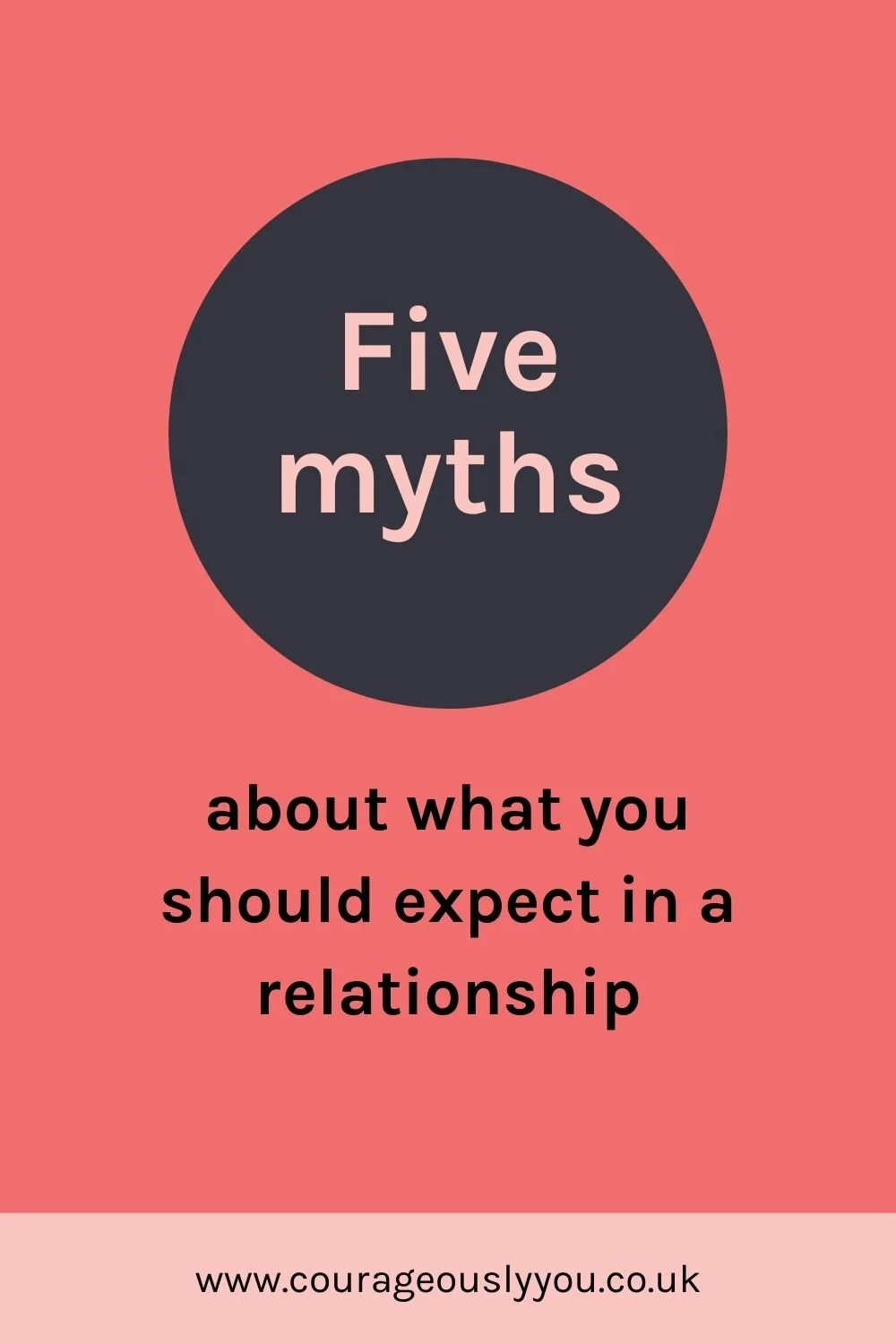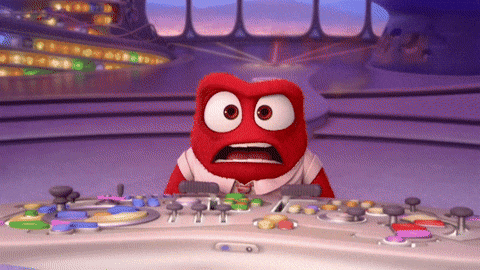Five myths about what you should expect in a relationship
As Shakespeare once famously wrote, ‘To expect or not to expect.. that is the question?’ …
Okay maybe not, but in the work I do as a Relationship & Life Coach it’s a common dilemma! Working out what you want from a relationship, whether it’s too much or not enough, whether it’s right or wrong, what you should put up with, what you should forgive, what you should ask for, is COMPLICATED.
And on top of that mess, there’s a lot flying around about what you should expect, how you should expect it, how you should ask for it, how you should be, think, feel, do. Excuse me while I go and drown under a sea of shoulds.
So today I’d like to get myth-bustery and cut through the noise of those bold, shocking headlines that like to tell you there’s only one way to be in a relationship…
What we’ll cover:
5 myths about what you need to understand your relationship expectations
A resource with ideas of what to try to understand them better!
Five myths about understanding your relationship expectations
Myth #1 - What you expect (or don’t) is your ‘fault’
Call it comparison as a result of social media, call it lack of self-compassion, call it a consequence of self-help culture and the over emphasis on individual responsibility (if you just work harder, do more, be different, you’ll be ‘happier’). However you slice it, it’s easy to a feel a sense of personal failing when we struggle to know what to expect from our relationships.
“If only I wasn’t so confused. Why do I make this so hard?”
“Why can’t I just say what I want? Why can’t I just lay my boundaries down?”
“I know I can’t expect my partner to be the source of all my happiness, but I’m not sure I’m happy and don’t know if it’s okay to ask more of them - why can’t I just work this out?”
Yes, working out what you want, feeling more confident about what you expect, and getting comfortable asserting and maintaining your boundaries, is your responsibility. If you don’t like the way it is, you can make a change. But it’s not your fault that it’s got so confused to begin with!
You are not an island. You are a product of your environment, your family influence, wider society, your culture, the biology in your human-ness, the sum of the people you spend the most time with.
And guess what? All of those influences are confusing and conflicting! It’s no wonder you can’t see your arse from your elbow (excuse the phrase).
If we take just one example - how the media portrays the role of a woman in a relationship, you might find the following:
“All these influences are confusing and conflicting! It’s no wonder you can’t see your arse from your elbow.”
Be career driven and ambitious but don’t forget about the needs of your partner.
Be a boss woman super lady, but don’t forget to pop a couple kids out.
Aged 21? You need to discover yourself, and not adhere to traditional gender roles.
Aged 27? Why aren’t you married yet?
Be sexy, but not too sexy that you seem slutty.
Be assertive and hold your ground, but don’t be too bossy, it’s unbecoming.
Okay, you get the idea. * Excuse me whilst I step down off my soapbox *
In summary, it’s not you fault if you’re confused and don’t know what the heck to expect from another human being, or yourself, when in a relationship.
If you want to read more about external influences, in this written conversation about the book Sex at Dawn: How We Mate, Why We Stray and What it Means for Modern Relationships we cover questioning the history and science we’ve been taught about relationships.
Or you might want to check out how external influences impact how we feel about conflict and fighting in our relationships in this conversation here.
Myth #2 - Your expectations are fixed
You are not a fixed being forever and neither is your relationship. Over the course of your relationship things will change. You’ll tackle new challenges, you’ll change environments, you’ll go through different experiences. You will both change as a couple, and individually, and your expectations may change too. That’s okay. Such is life.
It’s important to check in with yourself, and each other, on your evolving expectations. In this conversation I had with Sex & Relationship Coach Jerry Souter, she helpfully suggests to map out what you expect from a relationship at different stages. After all, what you expect at the beginning, will differ from what you expect ten years later.
This one also leads on to…
Myth #3 - It’s too late to assert your expectations
At some point in your relationship you may decide that what you once expected is no longer important to you, or something does become important to you. Alternatively, you might evolve as a person and realise the things you were telling yourself you didn’t want, were said out of people pleasing and a fear of rejection, and now you realise you do want them!
It’s never too late to communicate with your partner. It might be more difficult if you’ve never spoken in that way before, or if it’s been a long time stuck in a certain pattern. But doing it is a heck of a lot better than trying to pretend you don’t care about the things that really matter to you, and slowly eroding who you are and what you want, for the sake of not causing a fuss.
Myth #4 - Once you know what you want, it’s easy to ask for it
It’s important to know what you want in a relationship, what your boundaries are, your dealbreakers, what kind of life you want, and how a person fits into that. But just because you know, doesn’t mean it’s automatically easy to ask for it. And i’m talking about communicating within your own relationship, and being able to assert with others what you want when they’re trying to pressure you (e.g. parents who are questioning why you aren’t married yet.)
It’s a step-by-step process. It doesn’t happen over night. Start with one small action. Pick up on one thing you want to communicate to your partner, or family member, about your expectations and just do it. Then sit with the uncomfortable ick. It will go away, and it will get easier!
Myth #5 - There’s one right way to understand what your expectations are.
As a Coach, I hugely value asking questions when trying to understand yourself and your relationships better. And if you’re not working with a coach, you can try self-coaching questions that allow you to reflect by yourself and consider the options.
However, this is just one way to approach things and we (a lot coaches included!) forget this. You can learn to understand more about what you expect, and how to communicate those expectations by reading a book, or writing down the answer to some questions, or talking to a friend.
But there are many more ways you can access your own self-insight, that allow you to get out of your head, stop overthinking, and see things from a different perspective.
With this in mind, I’ve created a workbook that gives you 4 key questions to ask yourself about your relationship expectations, along with some different and creative ways to answer the questions - they may not all be for you, but you have options that go beyond trying to ‘think’ your way to clarity!
Get clarity on what you expect in a relationship by trying new and creative ways to understand your expectations.














I help late diagnosed ADHD folk make career and life decisions they trust. ICF Certified Coach, Youtuber & Writer.